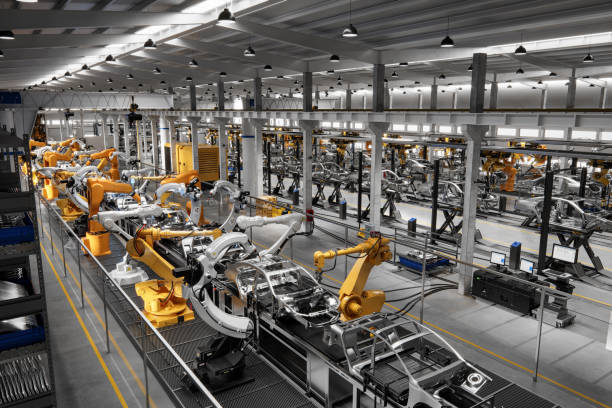Factory Jobs: Roles, Skills, and Working Conditions
Factory work covers a wide range of roles in the production of goods, from hands-on assembly to engineering, and from quality control to logistics. This article explains common factory roles, how manufacturing and production processes are organized, essential skills for workers, and some differences often observed in Japan’s industrial setting. The content is informational and does not represent or list active job openings; readers should consult reputable local services, training centers, or official employment platforms for current hiring information.

What roles exist in factory settings?
Factory environments include many distinct roles that together keep production running. Common positions are machine operators who run and monitor equipment; assemblers and production line workers who put parts together; maintenance technicians who repair and service machinery; quality inspectors who check products for defects; and logistics staff who handle material flow and shipping. Supervisors and production planners coordinate schedules and resources, while process engineers and industrial technicians focus on efficiency and continuous improvement. Job titles and exact responsibilities vary by industry, factory size, and technology level.
How does manufacturing work on the production line?
Manufacturing and production typically follow a sequence of stages: material receipt and staging, component fabrication, assembly, testing, finishing, and packaging. Many factories use standardized workflows such as assembly lines, cells, or modular production areas. Increasingly, automation and robotics handle repetitive or hazardous tasks, while human workers manage oversight, troubleshooting, and quality decisions. Systems for quality assurance and production planning—such as visual controls, standardized work instructions, and inventory management—help maintain consistent output and reduce waste in the production process.
What skills do factory workers need?
Factory workers need a mix of technical and interpersonal skills. Technical abilities include machine operation, basic electrical or mechanical troubleshooting, reading technical drawings, and adherence to safety procedures. Digital literacy is more important as factories integrate computerized controls, PLCs, and simple data-collection systems. Soft skills such as attention to detail, teamwork, communication, and problem-solving are essential for working on production teams and responding to unexpected issues. Many employers value certifications or vocational training in relevant trades, but on-the-job training programs are also common.
How do factory jobs in Japan differ?
Factories in Japan are often associated with strong attention to quality control, incremental improvement practices (such as Kaizen principles), and high levels of automation in certain sectors. Cultural and regulatory factors can influence workplace practices, training approaches, and expectations around punctuality and teamwork. Language and certification requirements may differ for foreign workers, and employers commonly emphasize consistent standards and process documentation. These observations are general; specific working conditions, employment terms, and requirements vary by company, prefecture, and industry.
What are health, safety, and shift considerations in production?
Health and safety are central to factory work. Common considerations include ergonomics to reduce repetitive strain, hearing protection for noisy environments, proper handling of hazardous materials, ventilation, and machine guarding. Shift work and extended hours can affect fatigue and work–life balance; employers may use rotating schedules, fixed shifts, or split shifts depending on production needs. Training in emergency response, safe operating procedures, and personal protective equipment (PPE) use is a routine part of onboarding. Legal protections and workplace standards differ by country and region, so workers and supervisors should be familiar with applicable regulations and local services for occupational safety.
Conclusion
Factory jobs span a broad spectrum of roles tied to production and manufacturing, each requiring particular skills, safety practices, and coordination. Whether a facility relies on manual assembly, automation, or a hybrid approach, effective production depends on clear processes, trained workers, and ongoing attention to quality and safety. For up-to-date information about training programs, certifications, or employment pathways, consult vocational institutions, official labor resources, or trusted local services; this article is for informational purposes and does not list active job opportunities.






